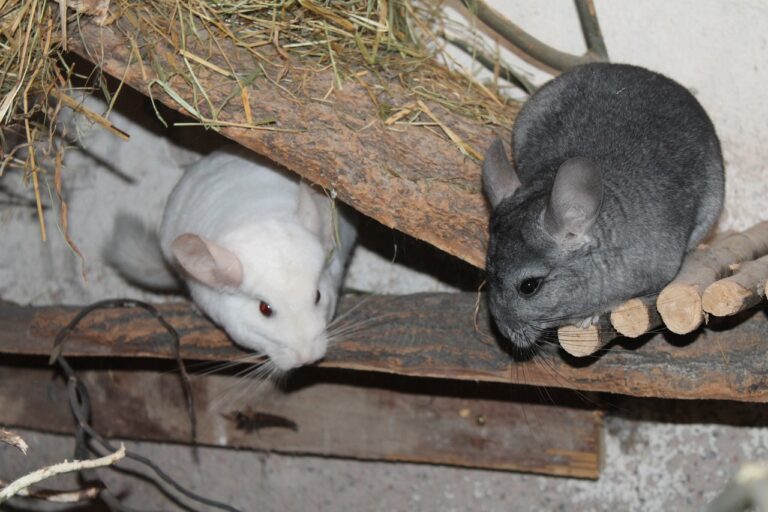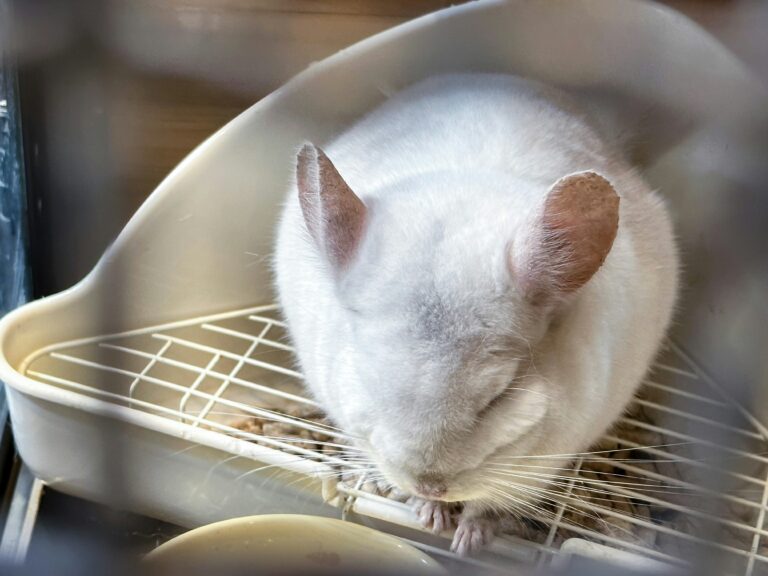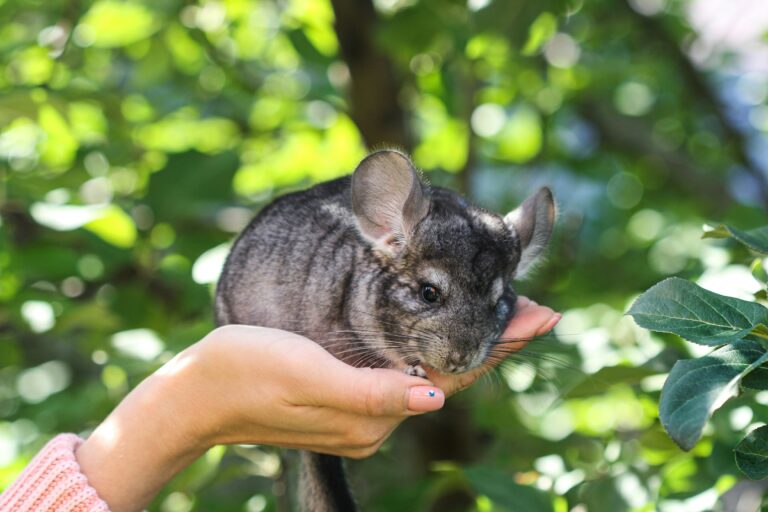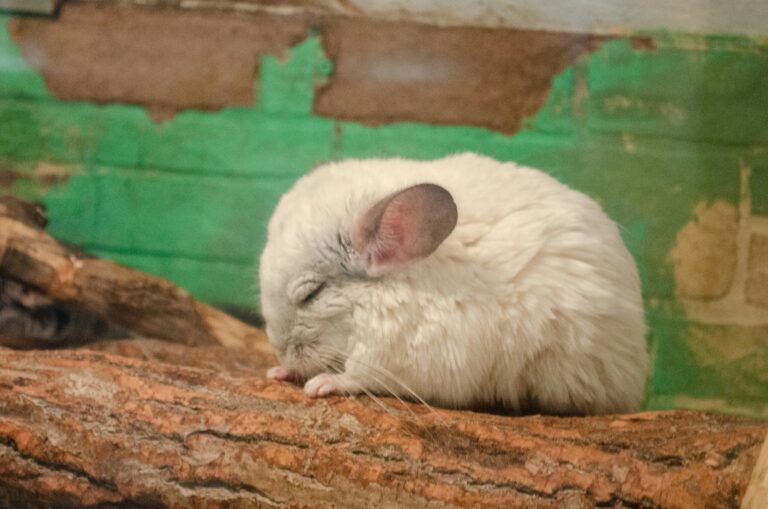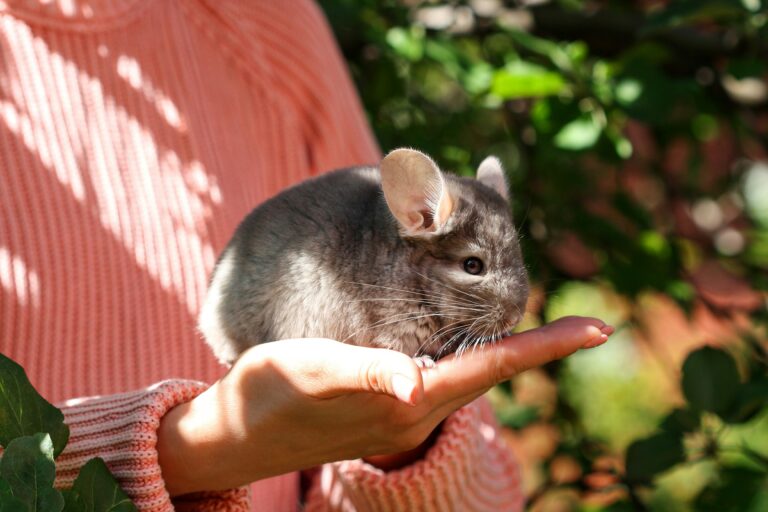What is a Chinchilla? Learn All About These Exotic Pets
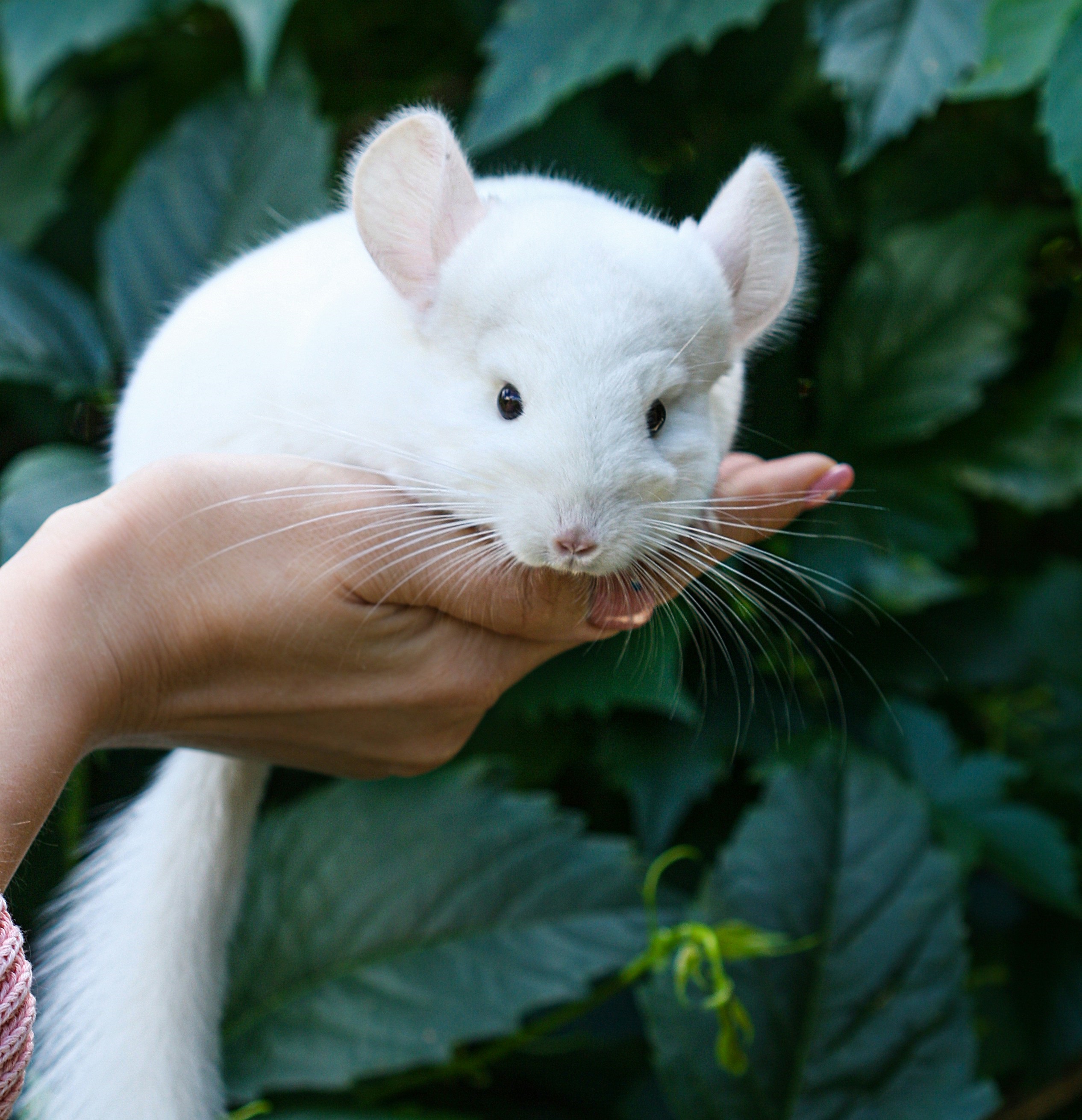
Originating from the rugged terrain of the Andes Mountains in South America, Chinchillas have become popular as pets due to their endearing nature and unique characteristics!
In this article, we’ll delve deep into the fascinating world of chinchillas, exploring their natural habitat, distinctive features, care requirements, health considerations, and the joys of sharing your life with these delightful creatures.
Origins and Natural Habitat
Chinchillas belong to the family Chinchillidae and are native to the Andes Mountains region of South America. They are primarily found in countries such as Chile, Peru, Bolivia, and Argentina, where they inhabit rocky, high-altitude environments characterized by sparse vegetation and harsh climatic conditions. In the wild, chinchillas are well-adapted to their mountainous habitat, relying on their agility and keen senses to navigate steep cliffs and rocky terrain! Their natural habitat provides ample opportunities for climbing, jumping, and burrowing, reflecting their agile and adventurous nature.
Chinchillas are crepuscular creatures, meaning they are most active during dawn and dusk. In the wild, they live in colonies, forming intricate social structures and engaging in various behaviors, such as grooming, scent marking, and vocal communication.
Distinctive Features
Chinchillas are renowned for their striking appearance and distinctive features, which set them apart from other rodents. Some key characteristics include:
Soft Fur: Chinchillas possess the softest fur of any land mammal, with each hair follicle producing over 50 fine hairs! Their dense fur provides insulation against the cold temperatures of their mountainous habitat and serves as a defense mechanism against predators.
Large Ears: Chinchillas have large, expressive ears that help regulate their body temperature by dissipating heat. Their acute hearing also aids in detecting predators and communicating with other chinchillas.
Large Eyes: Chinchillas have large, dark eyes that give them a curious and alert expression. Their keen eyesight helps them navigate their environment and spot potential threats.
Bushy Tail: Chinchillas have a bushy tail that aids in balance and communication. They use their tails to express emotions and maintain stability while climbing and jumping.
The combination of these features gives chinchillas a distinctive and endearing appearance, making them popular subjects for photography, art, and media!
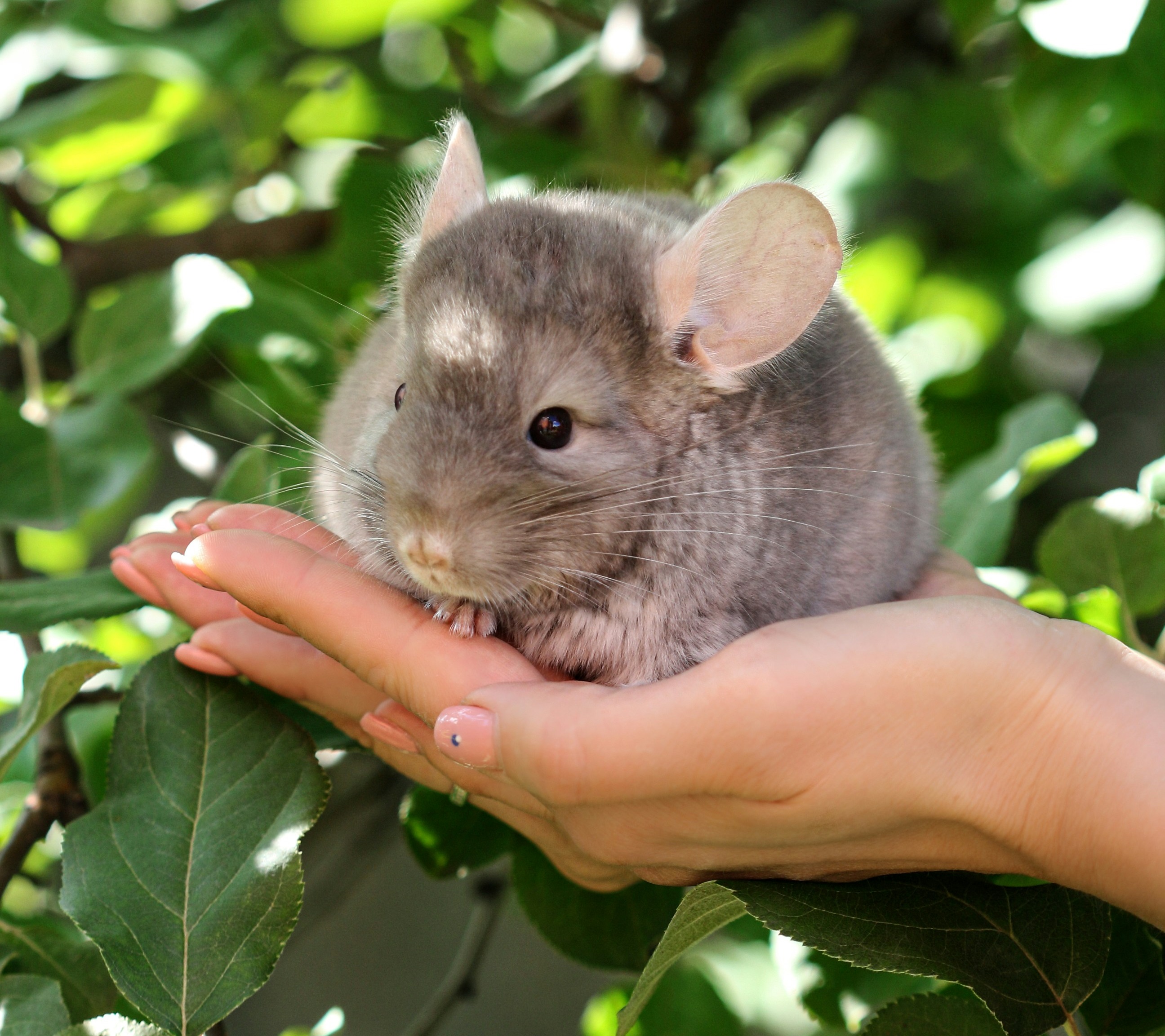
Chinchillas as Pets
Chinchillas have gained popularity as pets due to their charming personality, low maintenance requirements, and longevity. When properly cared for, chinchillas can live for up to 15 years or more in captivity, providing years of companionship and joy to their owners. However, owning a chinchilla requires commitment and dedication, as they have specific needs that must be met to ensure their health and well-being.
Care Requirements
Providing proper care for a pet chinchilla involves attention to several key areas:
Housing: Chinchillas require a spacious cage with multiple levels for climbing and exploring. The cage should be made of wire mesh to allow for ventilation, and solid flooring to prevent foot injuries. Additionally, provide plenty of hiding spots, toys, and chewable items to keep your chinchilla mentally stimulated.
Diet: A balanced diet is essential for a chinchilla’s health. Their diet should consist primarily of high-quality hay, supplemented with chinchilla pellets. It’s crucial to avoid foods high in sugar, fat, and moisture, as these can cause digestive problems and other health issues.
Grooming: Chinchillas are meticulous groomers and require regular dust baths to maintain their fur. Provide a dust bath container filled with chinchilla-specific bathing dust, and allow your chinchilla to bathe for 10-15 minutes several times a week. Additionally, trim your chinchilla’s nails as needed to prevent overgrowth and discomfort. Check out our guide here about dust baths!
Socialization: Chinchillas are social animals and benefit from daily interaction with their owners. Spend time bonding with your chinchilla through gentle handling, playtime, and positive reinforcement. However, it’s essential to respect your chinchilla’s boundaries and avoid overwhelming them with excessive handling or loud noises.
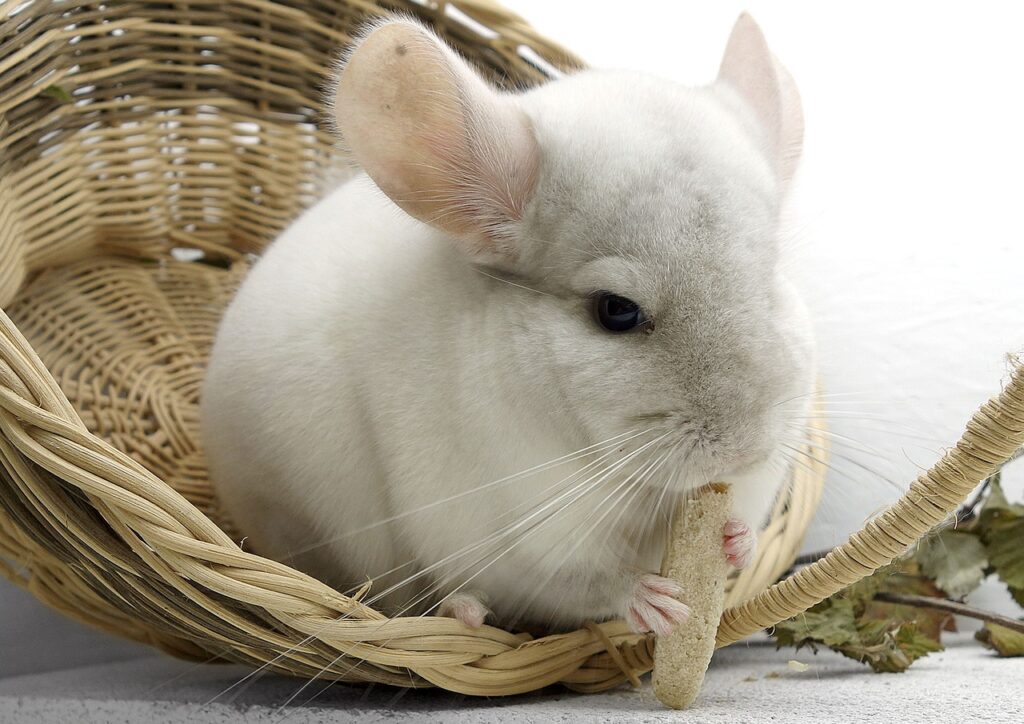
Health Considerations
Like all pets, chinchillas are susceptible to certain health issues that require vigilance and prompt veterinary care. Common health concerns in chinchillas include dental problems, gastrointestinal issues, respiratory infections, and fur-related ailments. Regular health check-ups with a qualified exotics veterinarian are essential for detecting and addressing any health problems early on. Additionally, maintaining a clean and hygienic environment, providing a balanced diet, and monitoring your chinchilla’s behavior and appearance can help prevent health issues and ensure their overall well-being.
Breeding and Reproduction
Breeding chinchillas requires careful planning and consideration, as it is essential to ensure the health and welfare of both the parents and offspring. Chinchillas reach sexual maturity at around six to eight months of age, and females typically have a gestation period of approximately 111 days. A responsible breeding program involves selecting healthy, genetically diverse individuals with desirable traits and providing appropriate care and nutrition throughout the breeding process. It’s essential to avoid overbreeding and to prioritize the welfare of the animals at all times. Check out our guide here about breeding chinchillas and here about how to wean older babies.
Legal Considerations
Before acquiring a chinchilla as a pet, it’s crucial to research and understand any legal restrictions or regulations that may apply to chinchilla ownership in your area. Some regions have specific laws governing the possession and breeding of exotic animals, including chinchillas. Familiarize yourself with local ordinances, permit requirements, and ethical guidelines to ensure compliance with legal and ethical standards.
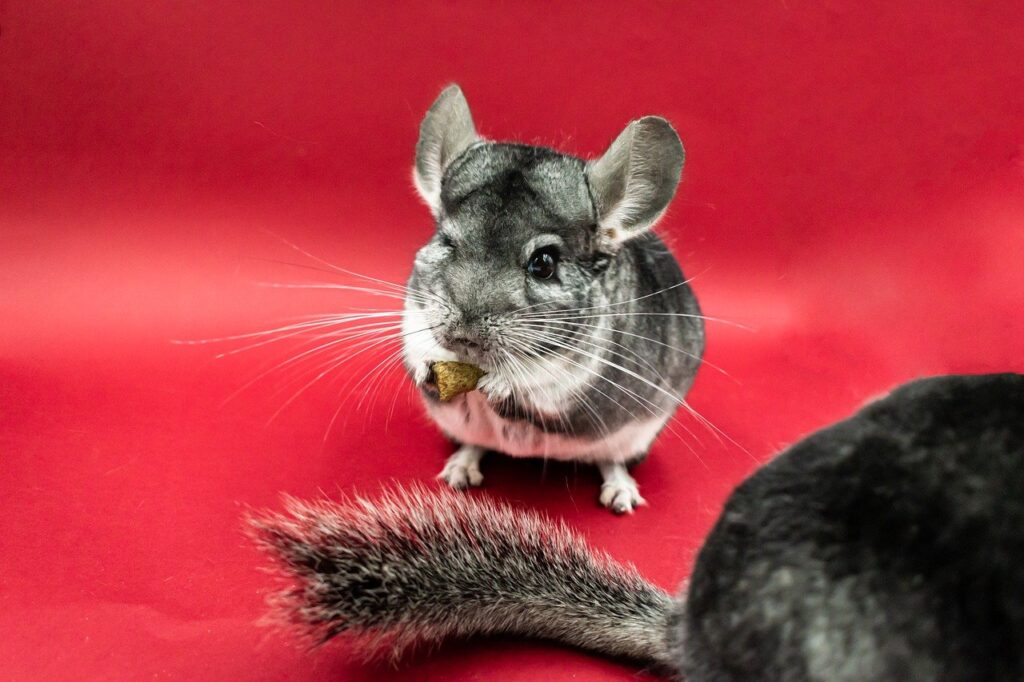
Conclusion
Chinchillas are fascinating creatures with a rich history, unique characteristics, and endearing personalities. Whether admired for their soft fur, playful antics, or gentle demeanor, chinchillas have earned a special place in the hearts of pet enthusiasts worldwide.
By understanding their natural habitat, distinctive features, care requirements, health considerations, and legal implications, prospective chinchilla owners can ensure that they provide the best life possible for their furry friend! With proper care, love, and attention, a pet chinchilla can bring joy, laughter, and endless cuddles into your life for many years to come.

